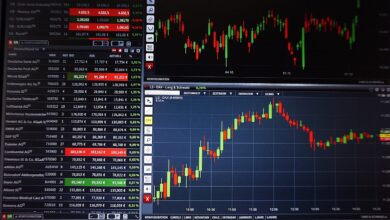
Download the Summary of the Reference Note
Download the Reference Note
Multilateralism is in crisis and the blocking of US WTO Dispute Settlement Body (DSB) appointments is only part of it. The current trade war is a major challenge to the international order inherited from the 1990s. Believing that the situation is the result of the President of the United States’ personna and using China as a scapegoat is surely not a healthy base to help redefine a new international economic order as a factor of peace. The crisis of the WTO is an important indicator for the European Union itself: their trajectories have been partly common for three decades, whether on the Common Agricultural Policy (CAP) but also the development policy and of course trade policy.
Trade is a means and not an end. The pre-eminence of the WTO over other international institutions is not appropriate to address the challenges of the 21st century such as food security, climate change, protection of natural resources, migratory phenomena and macroeconomic imbalances. The form of supranationality that the WTO has reached with the DSB also questions democratic principles. International cooperation is needed more than ever, but the creation of the WTO has institutionalized widespread competition as the culmination of the governance of the global economy through the erasure of nation-states.
While the Doha Round has been stalled on agricultural issues for more than 10 years, the grounds of negotiation are still more or less the same. The 2007/08 food crisis of has led to a profound challenge to WTO discipline in agriculture and a strengthening of agricultural policies around the world. However, the structural volatility of agricultural markets and the means to reduce it are still not a subject in the WTO. Climate change, however, would require relegitimizing public storage, but this central attribute of food security is still considered illegal despite India’s efforts to rehabilitate it.
On the basis of this observation, we recommend:
- to establish as a principle that multilateralism must first and foremost enable the emergence of cooperation between sovereign states in order to build the new equilibrium of a world that is more multipolar than ever before. This implies going beyond the current software based on competition and supranationality. To think of globalization as the unification of a world-economy by the negation of nation-states will have been a mistake;
- to re-establish a hierarchy between states and companies. Democratic choices cannot be questioned in the name of the protection of particular interests, no matter how important they may be. The recent decision of the United States to empty the State-investor arbitration tribunal following the renegotiation of NAFTA goes in this direction;
- to question the belief in the regulatory virtues of price adjustment. Whether overcapacity for steel and aluminum production or macroeconomic imbalances, we must see in the current US strategy the willingness to act where market mechanisms show their limits. The balance of international markets must be seen as a common good that requires active cooperation between their main protagonists;
- encourage multi-lateral agreements by calling into question the principle of non-discrimination in order to give countries that volonteer for cooperation an advantage over others. It is a question of being able to discriminate the products according to the modes of production. With its internal market, the European Union has the important power to initiate this type of ambitious cooperation in order to initiate the transformations required by the challenges of the 21st century, and in the first place the fight against climate change;
- to reposition the WTO on an equal footing with the other international institutions, or even to work on its reform to place it in the field of the UN institutions, in order to make it an organization conducive to dialogue, seeking conciliation and the structuring of stabilizing and sustainable commercial cooperation.
On specifically agricultural issues, we recommend:
- to call on the WTO to make the 2030 Agenda Sustainable Development Goals its work program. It is necessary to focus on the actual functioning of agricultural markets to consider public policies as the means of correcting the main market failures. The prices of international transactions do not correspond to their equilibrium level, but most often to dumped prices;
- to rehabilitate the Commodity Agreements and the Havana Charter which have allowed the development of trade until the early 1980s. Commodity agreements are successful examples of international cooperation to secure international trade;
- promote agriculture-based development strategies to meet demographic, migration, food security and climate change challenges, particularly for the benefit of African countries;
- to create a UN-affiliated World Food Security Council to organize consultations, particularly within the various agencies and international organizations, and prepare international cooperation on agriculture and food.
China’s willingness to integrate agriculture into negotiations on the limits to dumping and the European-American standoff over Spanish table olives and decoupled aid are poised to bring agricultural issues in the commercial war. The pressure will intensify on the European Union faced with its contradictions: on the one hand, it sees itself as a champion of multilateralism; on the other, she prefers the comfort of rules to her advantage but attacked from all sides. To avoid being caught up in agricultural issues, it will have no choice but to call for a review of the multilateral agricultural rules and to lead the way by embarking on a new trajectory of reforms in the for the CAP. Otherwise, if it does not find a strategic autonomy between the American and Chinese giants, it is the European project itself, and in particular the main integrated community policy, which are in danger.
The crisis of multilateralism is a major challenge for the political Europe which will have no other alternative than to build its economic sovereignty or, in disunity, to be imposed a new economic order by the United States and China.












